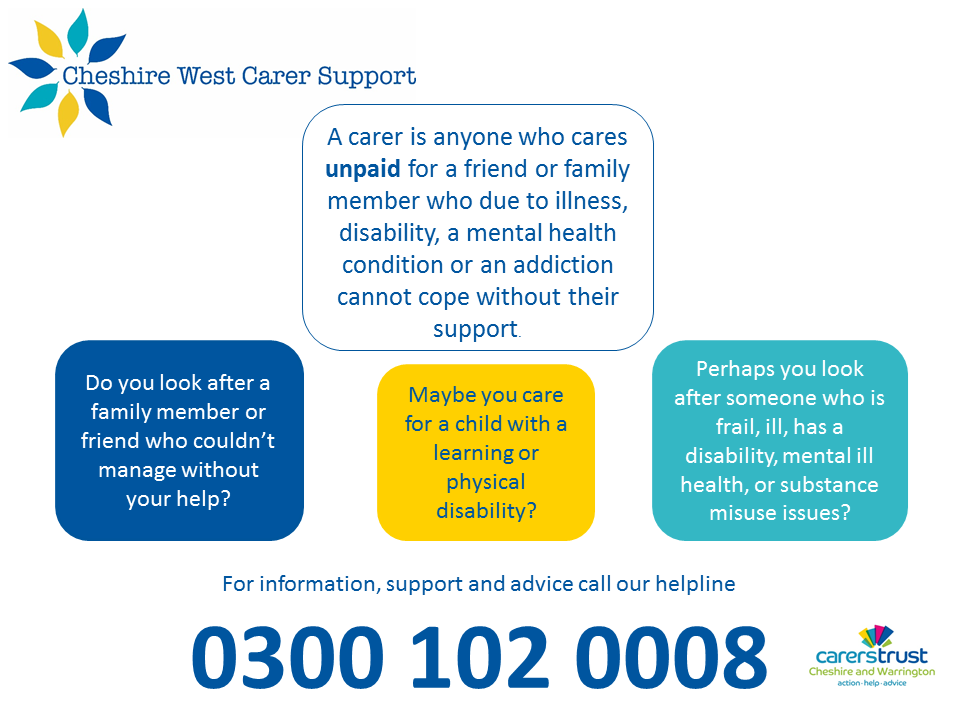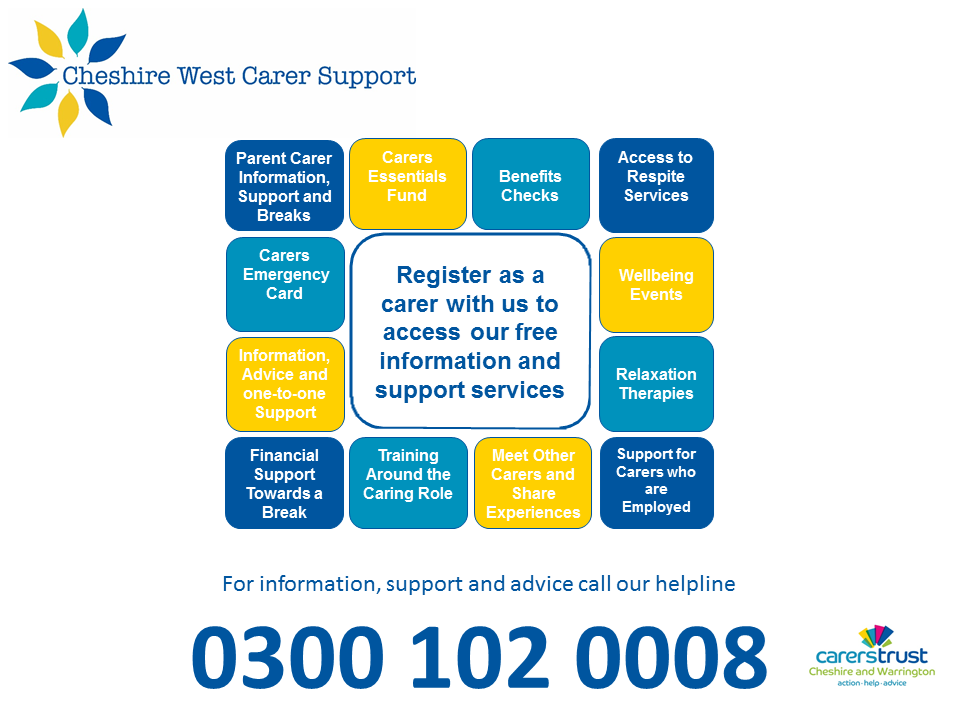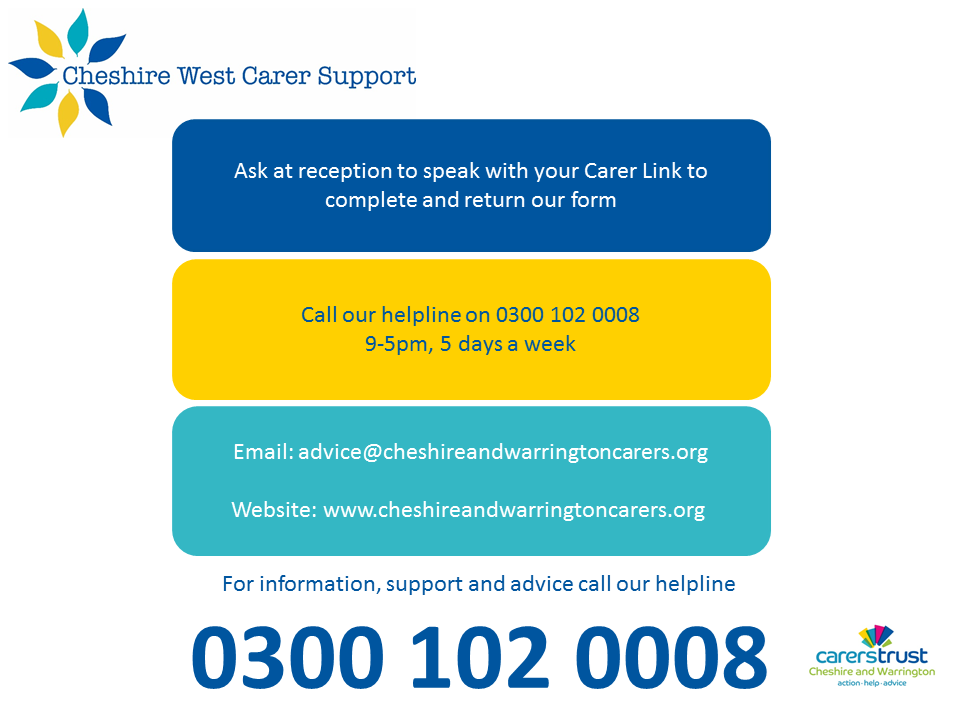Please see below for up to date information and assistance.
1.The Cheshire and Warrington Carers Trust helpline 0300 102 0008 is open Monday to Friday 09:00 until 17:00 and we would encourage carers to call this number with any queries (there is an answer machine out of hours on which you can leave a message).
2. They are still booking appointments to help with benefits etc but these are now being done over the telephone – please continue to signpost and refer any carers who need support with this.
3. Essentials fund – this is still in operation and may be needed even more at the moment. Please continue to refer carers to us who need support to buy an item such as a cooker/washer/fridge/freezer
4.Personal Budgets, whilst this is a changed service we are still offering breaks but thinking how we can do them differently e.g. gym equipment for home use and also extending the amount of time to spend the money awarded.
5. Emergency card – this continues as normal
Every day, another six thousand people take on a caring responsibility. Carers provide unpaid care by looking after an ill, frail or disabled family member, friend or partner.
Every year 2 million people become carers, so the first thing to remember is you are not alone! Becoming a carer can be bewildering, confusing and frightening. No one is super human and all carers need some support and back-up.


